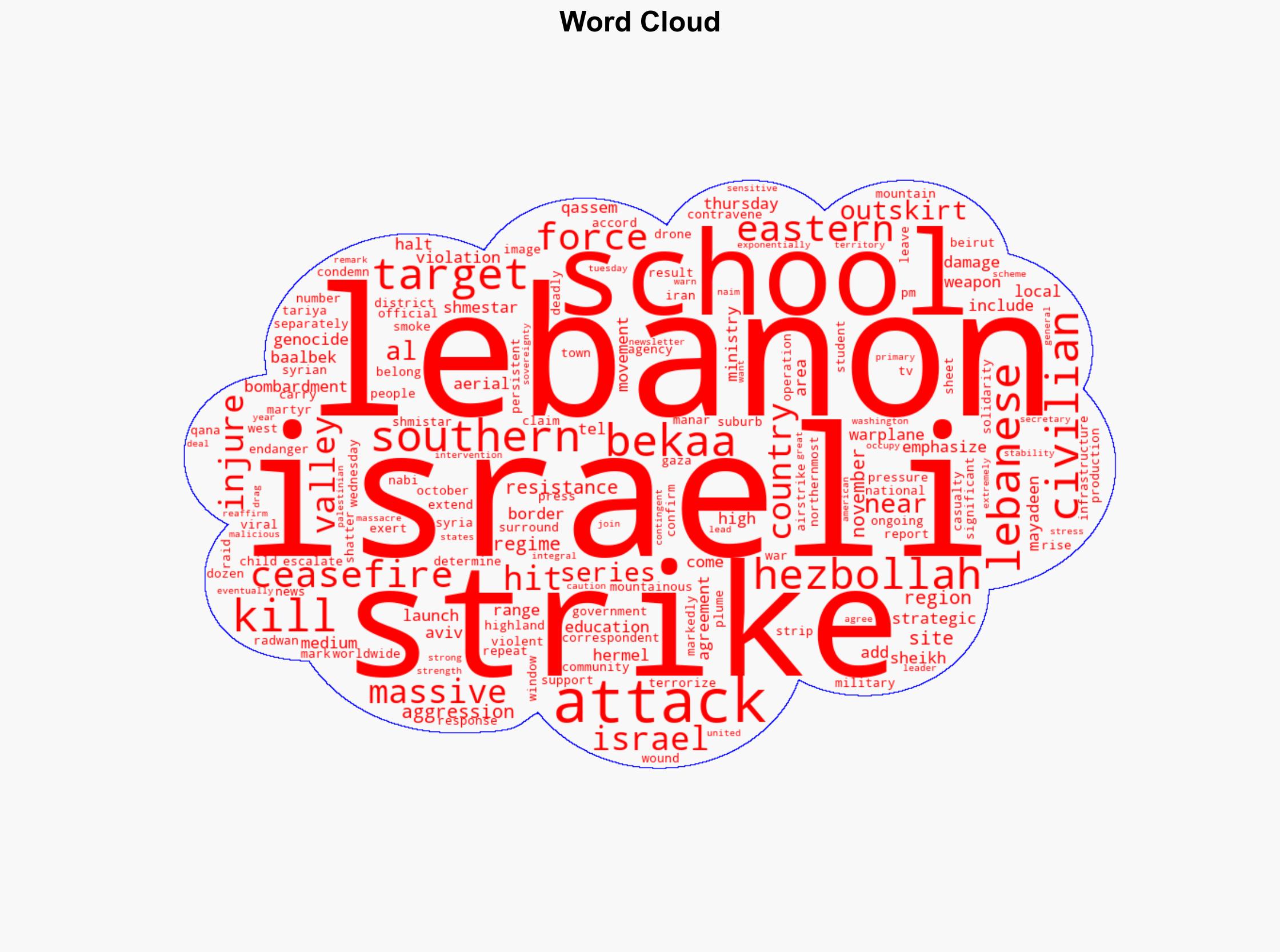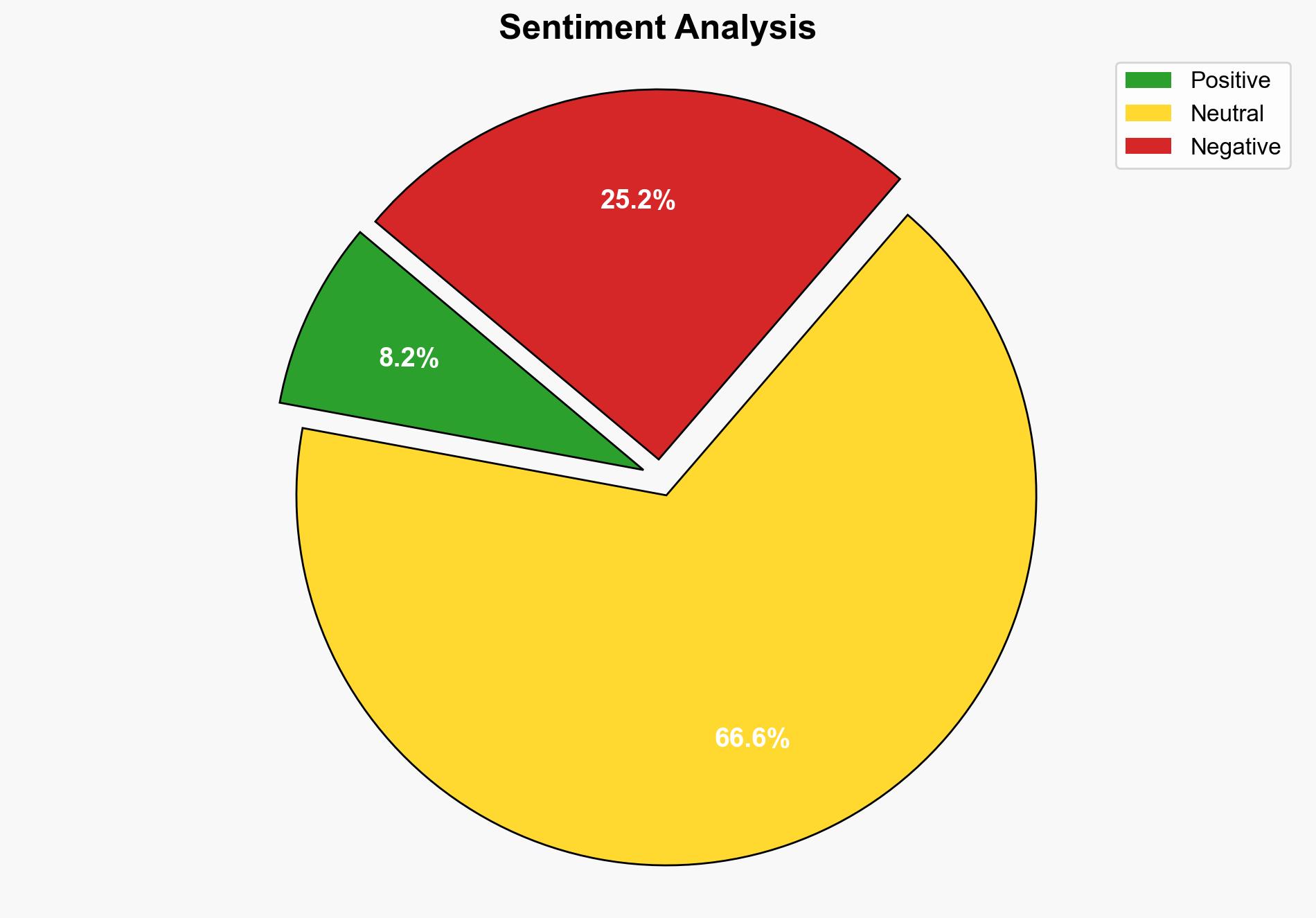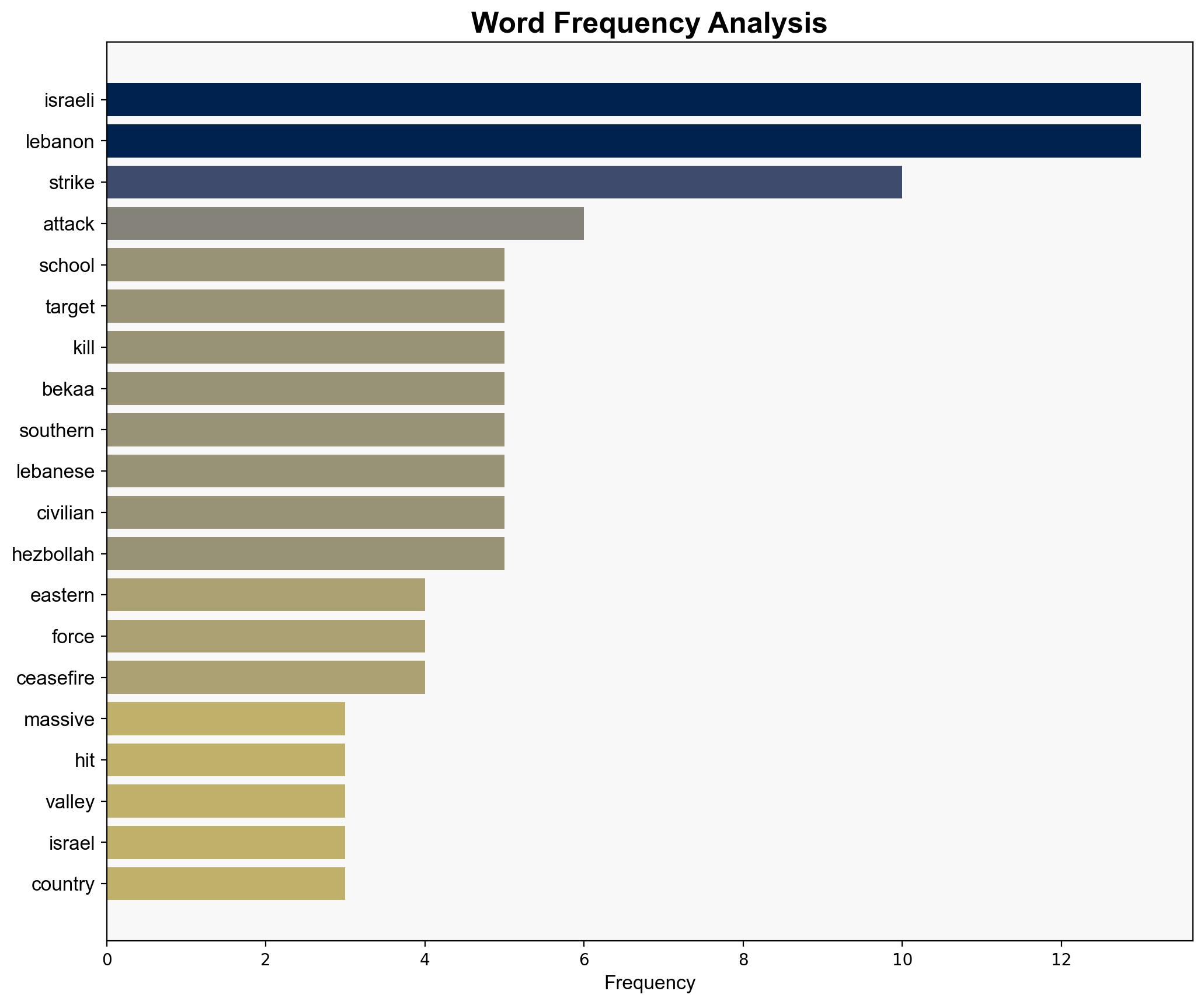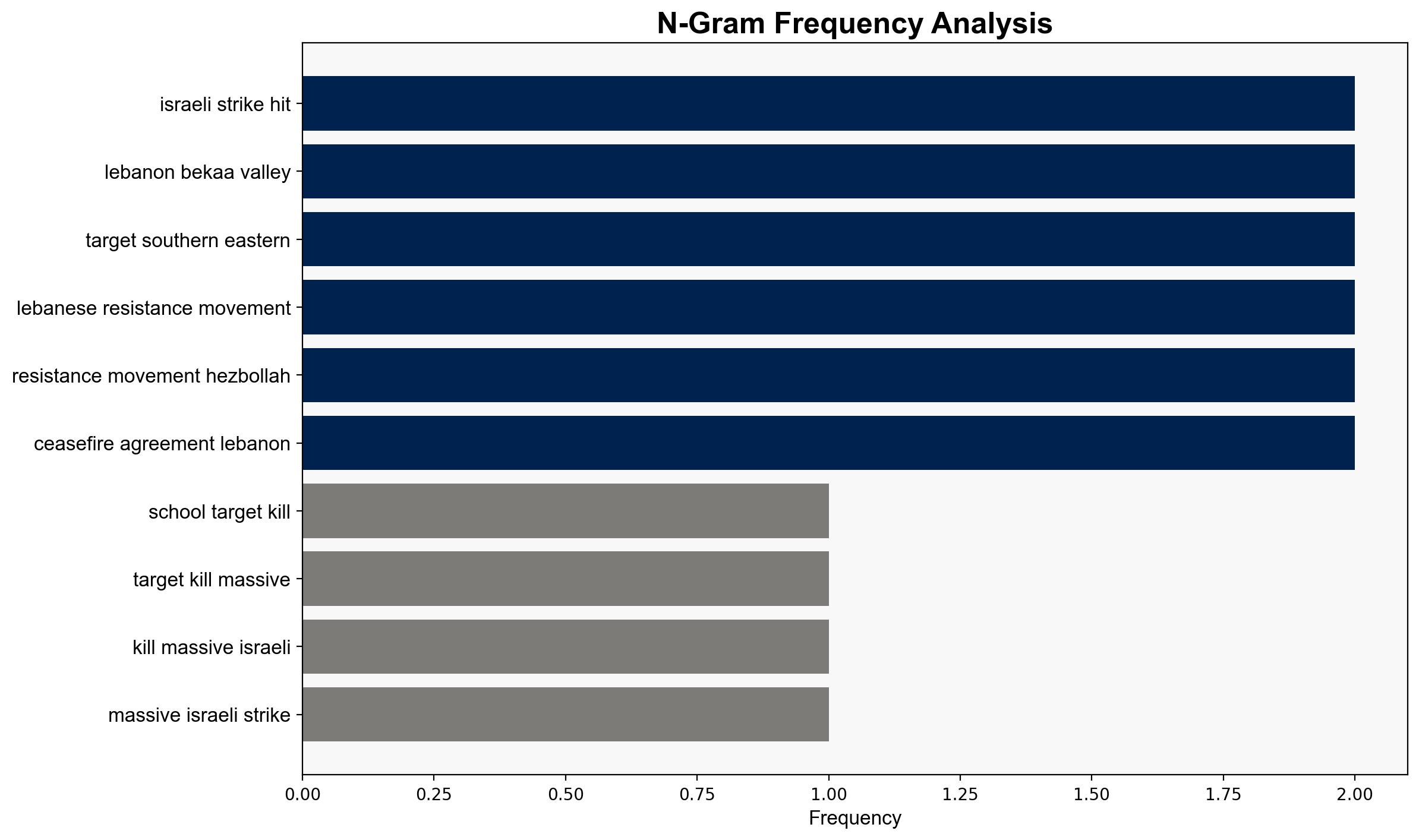Schools targeted two killed as massive Israeli strikes hit Lebanon’s Bekaa Valley – Globalsecurity.org
Published on: 2025-10-24
Intelligence Report: Schools targeted two killed as massive Israeli strikes hit Lebanon’s Bekaa Valley – Globalsecurity.org
1. BLUF (Bottom Line Up Front)
The most supported hypothesis is that the Israeli strikes in Lebanon’s Bekaa Valley are a strategic response to perceived threats from Hezbollah, aiming to disrupt potential military capabilities. Confidence level is moderate due to conflicting reports and potential biases in the sources. Recommended action includes diplomatic engagement to de-escalate tensions and verification of on-ground realities through independent channels.
2. Competing Hypotheses
1. **Hypothesis A**: The Israeli strikes are a direct military response to Hezbollah’s activities, targeting strategic sites to prevent the development or deployment of military capabilities that threaten Israel.
2. **Hypothesis B**: The strikes are part of a broader political strategy by Israel to exert pressure on Lebanon and Hezbollah, potentially as a deterrent against Hezbollah’s support for Gaza or to influence regional power dynamics.
Using Analysis of Competing Hypotheses (ACH) 2.0, Hypothesis A is better supported by the evidence of targeted strikes on military sites and the historical context of Israeli-Hezbollah tensions. Hypothesis B is less supported but plausible given the geopolitical context.
3. Key Assumptions and Red Flags
– **Assumptions**: It is assumed that the reports accurately reflect the targets and outcomes of the strikes. There is an assumption that Hezbollah poses an immediate threat that justifies such military actions.
– **Red Flags**: The reliance on media reports with potential biases, such as those from Al Manar and Al Mayadeen, raises concerns about the accuracy and objectivity of the information. The absence of independent verification of the targets and casualties is a significant blind spot.
4. Implications and Strategic Risks
The continuation of strikes could lead to heightened tensions and potential escalation into broader conflict, affecting regional stability. Economic impacts may arise from disrupted trade and increased military expenditures. There is a risk of cyber retaliation or asymmetric warfare tactics by Hezbollah. Geopolitically, increased tension may draw in external powers, complicating diplomatic efforts.
5. Recommendations and Outlook
- Engage in diplomatic dialogue with regional and international stakeholders to de-escalate tensions.
- Encourage independent investigations to verify strike targets and casualties.
- Scenario Projections:
- **Best Case**: Diplomatic efforts succeed, leading to a reduction in hostilities and a renewed ceasefire agreement.
- **Worst Case**: Escalation into a full-scale conflict involving regional powers.
- **Most Likely**: Continued sporadic strikes with intermittent diplomatic engagements.
6. Key Individuals and Entities
– Sheikh Naim Qassem
– Hezbollah
– Israeli military forces
7. Thematic Tags
national security threats, regional conflict, military strategy, geopolitical tensions





